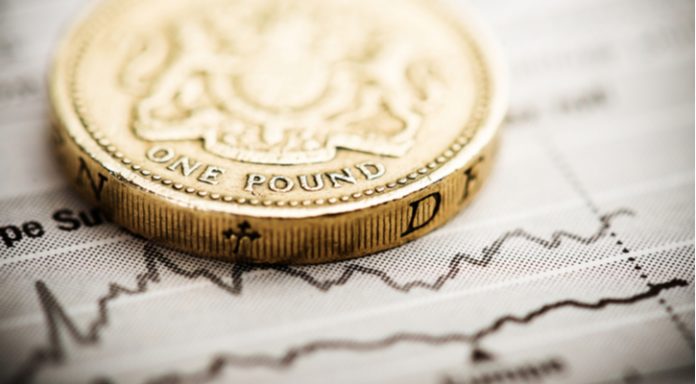German Chancellor expressing hope that a Brexit deal can be achieved by 31st October sent the pound surging higher versus the euro in the previous session. The pound euro exchange rate rallied to a high of €1.1077. This is the highest that the pair has traded at in overt here weeks. The pound was giving back some of these gains in early trade on Friday.
| What do these figures mean? |
| When measuring the value of a pair of currencies, one set equals 1 unit and the other shows the current equivalent. As the market moves, the amount will vary from minute to minute.
For example, it could be written: 1 GBP = 1.13990 EUR Here, £1 is equivalent to approximately €1.14. This specifically measures the pound’s worth against the euro. If the euro amount increases in this pairing, it’s positive for the pound . Or, if you were looking at it the other way around: 1 EUR = 0.87271 GBP In this example, €1 is equivalent to approximately £0.87. This measures the euro’s worth versus the British pound. If the sterling number gets larger, it’s good news for the euro. |
The pound rallied to the highest level that it has traded at this month as investors seized on hints from European leaders that a Brexit deal could still be achieved. Germany’s Angela Merkel suggested that she believes that it is still possible to over comet the current impasse within the next 30 days.
French President Emmanuel Macron agreed, although he cautioned that it could not stray to far from the current deal. Whilst Macron sounded more sceptical than Angela Merkel, he didn’t completely rule out the chances of a breakthrough. This slight hint of optimism sent the pound soaring.
Today there is no UK economic data to be released. As a result, Brexit will remain the central focus for pound investors. Optimism over finding an alternative solution to the Irish backstop issue is fading. Without an acceptable alternative a no deal Brexit would be the most likely scenario. The prospect of a disorderly Brexit is dragging the pound lower.
| Why is a “soft” Brexit better for sterling than a “hard” Brexit? |
| A soft Brexit implies anything less than UK’s complete withdrawal from the EU. For example, it could mean the UK retains some form of membership to the European Union single market in exchange for some free movement of people, i.e. immigration. This is considered more positive than a “hard” Brexit, which is a full severance from the EU. The reason “soft” is considered more pound-friendly is because the economic impact would be lower. If there is less negative impact on the economy, foreign investors will continue to invest in the UK. As investment requires local currency, this increased demand for the pound then boosts its value. |
Euro Drops As German Manufacturing Sector Remains In Contraction
The euro was out of favour in the previous session, despite stronger than forecast PMI data from France, Germany and the bloc as a whole. Given that the German economy contracted in the second quarter and that fears of Europe’s largest economy slipping into recession are growing, investors were keen to get a glance at what is happening inside the German economy.
Whilst the German PMI was higher than analysts forecast it was still dismal at 43.6. Analyst had forecast 43, whereby 50 is the level which separates expansion from contraction. This means that the German manufacturing sector is still deeply in contraction as exporter Germany remains caught up in the US — Sino trade war. Another contraction for the German economy in the third quarter is looking likely meaning the European Central Bank could cut rates in September.
| Why do interest rate cuts drag on a currency’s value? |
| Interest rates are key to understanding exchange rate movements. Those who have large sums of money to invest want the highest return on their investments. Lower interest rate environments tend to offer lower yields. So, if the interest rate or at least the interest rate expectation of a country is relatively lower compared to another, then foreign investors look to pull their capital out and invest elsewhere. Large corporations and investors sell out of local currency to invest elsewhere. More local currency is available as the demand of that currency declines, dragging the value lower. |





